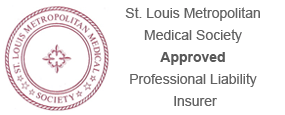In 2021, as part of the National Defense Act, Congress enacted the Corporate Transparency Act which imposes new reporting requirements for some businesses as of January 1, 2024. The purpose of the Corporate Transparency Act was to strengthen the United State’s financial crime monitoring system, by requiring certain entities to disclose and identify information about themselves, their beneficial owners, and their control persons to the U.S. government. The intended purpose of the Corporate Transparency Act is to aid the government in deterring money laundering, corruption, tax evasion, terrorist financing and other financial crimes. Congress has tasked the U.S. Department of the Treasury’s Financial Crimes Enforcement Network (FinCEN) with collecting the information about who owns and ultimately controls many companies doing business in the United States.
The Corporate Transparency Act mandates that any corporation, limited liability company, or any other entity created or registered to conduct business by filing a document with the Secretary of State of any U.S. state to file a “Beneficial Ownership Information” report with FinCEN. This report must be filed unless the legal entity falls within 23 enumerated exceptions. Any company formed prior to January 1, 2024, must report on their beneficial ownership before January 1, 2025. Entities formed during the 2024 calendar year, must file the report within 90 days of formation. Any entity formed after January 1, 2025, must file the report within 30 days of formation.
For reporting purposes, a beneficial owner includes any individual who directly or indirectly owns or controls at least 25% of the ownership interest in the entity, or any individual who directly or indirectly exercises substantial control over the entity. Individuals are deemed to exercise substantial control are those who serve as a senior officer (president, chief financial officer, general counsel, chief executive officer, or chief operating officer); have authority over the appointment or removal of any senior officer or a majority of the entity’s board; direct, determine or have substantial influence over key decisions made by the entity (including business, financial, or structural decisions); or exercises any other form of substantial control.
Additionally, if there is any change to the information contained in the report to FinCEN, the entity must file an updated report no later than 30 days after the of the change.
The Beneficial Ownership Report must contain information about the entity and personal information about the individuals who filed formation documents for the entity and beneficial information. This includes for the entity: legal name, trade name, tax identification number, state of formation and current address. For individuals the information required is the person’s legal name, date of birth, residential address, copy of government issued identification, an identification number from an acceptable form of identification, and the name of the state or jurisdiction issuing the identification.
Any individual or entity that fails to comply with the Corporate Transparency Act requirements may be subject to civil penalties or up to $500 for each day that a violation continues. Additionally, an individual may be subject to criminal penalties of up to two years in prison and a fine up to $10,000.
Some of the exemptions for entities that do not have to file the Beneficial Ownership Information report include public companies, large operating companies (having more than 20 full time employees in the U.S., and report more than $5 million in gross sales per year); investment companies and advisers, subsidiaries of certain entities; public utilities; accounting firms; tax exempt entities; companies regulated and reporting to state officials such as qualified banks, credit unions, and insurance companies; and inactive companies.
Notably, if you are not a large operating company, healthcare practices are likely not exempt from the reporting requirements.
You can obtain more detailed information about the Corporate Transparency Act and Beneficial Ownership Information reporting requirements on the U.S Department of Treasury, Financial Crimes Enforcement Network website at www.fincen.gov.
As many healthcare practices will not fall under the exemptions to the Corporate Transparency Act, you should be prepared to file the appropriate documentation before the end of 2024.

